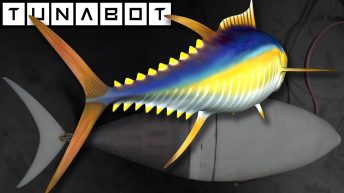A new research at the Tampere University and Aalto University demonstrates that the psychological concept of classical conditioning also applies to materials. The team used a stimuli-responsive gel that can “learn” to behave in new ways, just like Pavlov’s dog.
Classical conditioning is a form of learning through association. It was discovered by Ivan Pavlov, a Russian physiologist, famous for his experiments with dogs. As Pavlov sounded a bell while feeding his dogs, they soon learned to associate the sound with food, and would begin to drool when they heard the bell.
“We have been studying light-controlled robots in Tampere for a few years. Conditioning has allowed us to teach them new tricks, such as colour recognition and moving in conditions they are originally indifferent to”.
Professor Arri Priimägi, Tampere University
They conditioned the gel by heating it while exposing it to light. The gel had shown no response to light before conditioning. But exposed to the same wavelength of light, without heating, the gel melted spontaneously. It had “learned” to respond to a new stimulus, light. Just like Pavlov’s dogs and the bell sound.

Photo: Tampere University
‘Traditional robots also often need a power cord or a large, heavy battery. Soft robotics aims at lightweight, external control, for example by using light’.
This impressive research has the potential to advance materials engineering – for example create innovative coatings that are capable of adjusting their properties (color), in different contexts.
“Pavlov’s robot” research team:
- Arri Priimägi, Tampere University
- Olli Ikkala, professor at Aalto University
- Hao Zeng, postdoctoral researcher at Tampere University
- Hang Zhang, postdoctoral researcher at Aalto University
Article source:
https://www.tuni.fi/en/news/researchers-mimic-pavlovian-conditioning-stimuli-responsive-materials



